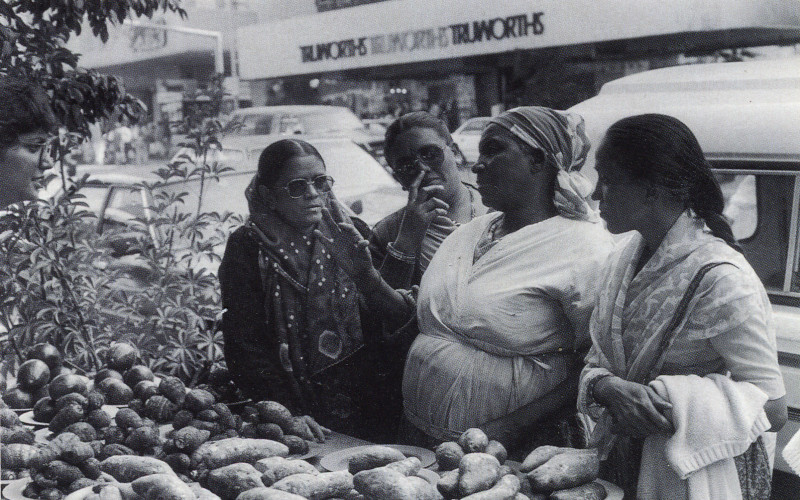The International Association of Strikes and Social Conflicts (IASSC) held its 6th Conference in Cape Town, South Africa from 4-7 February 2024.
The conference was organised around the theme Strike Activity in the 21st Century: Implications of the Recent Global Upsurge, considering the strikes and protests which spread across the world since the Arab Spring of the early 2010s. The objective of the conference was to explore the nature, dynamics, trajectory, limits and potential, and implications of strikes and protests of the 21st century.
Organisation of the conference
The members meeting of 2022 had agreed that the 2024 conference would be hosted in Cape Town. The editorial board of the association’s Workers of the World journal, and the host, the South Centre for Inequality Studies, Wits University had oversight of the planning and implementation of the conference. Eddie Cottle was mandated to serve as coordinator of the conference.
Funding of the conference
The conference solidarity partners, the Rosa Luxemburg Stiftung (Southern Africa) and Lo-Norway had made a combined contribution of approximately R400 000/USD 21 000/€ 19 000. We are very thankful for the support of our solidarity partners without whom the dynamic conference programme (the presentations combined with the cultural programme) would not have been possible. The solidarity partners had successfully ensured that the actual conference costs and the cultural programme was covered and thus served and a meaningful subsidy of the overall conference costs of participants. The financial statements for each solidarity partner should be finalised by the end of February.
Interest in the conference
As the 2022 conference in Rotterdam mainly drew interest from Europe, the members meeting agreed that the conference in South Africa would target 70 people and would ensure more representation from countries of the Global South. An initial total of 47 abstracts were received with 62 participants. Due to the inflationary spiral in the second half of last year combined with budget cuts of university faculties many participants especially from the Global South withdrew their participation in the conference with some provision made for online presentations. Interest in the conference came from Kenya, Nigeria, Ethiopia, Zimbabwe, South Africa, Philippines, Brazil, India, Uruguay, Mexico, Columbia, Portugal, UK, USA, Belgium, Germany, Italy, Spain, Turkey and Finland.
In the final programme the presenters came from Zimbabwe, Mozambique, South Africa, Mexico, Philippines, India, Columbia, Argentina, US, Portugal, UK, Germany, Spain and Holland. The total number of participants of the conference including walk-ins was about 60 people.
Assessing the quality of the conference presentations
On the basis of the collective judgement of the conference organising team and feedback provided at the Association’s general meeting, as well as more informally, the quality of conference presentations was very high throughout. This was evident in the broad range of strikes and social conflicts that were explored within different countries globally, across both historical and contemporary times frames, and often of a comparative nature; the combination of both (with varying balance of emphasis) extensive analytical and empirical dimensions within each contribution; and the wide variety of scholarly methodological approaches adopted and justified. In the process, across the different scheduled sessions there was extensive evidence of probing questions, reflections, argument and debate, further enlivening and enriching conference proceedings. The presentations revealed that labour is not on an eternal downward spiral and that gains including labour reforms indicate that labour is engaged in a fightback in both the Global South and the Global North.
To ensure that the analysis and information provided by the different regions do not get lost and shared with stakeholders who have an interest in the progress of labour the next edition of the Workers of the World journal will publish selected papers from the conference. Since there have been legislative reforms on platform work etc is it the responsibility of members of the association to share those with stakeholders in their respective countries. In this way the association does not only uphold the requisite standards of journal publications but also see the conference and its outcomes as a way of influencing public opinion and progressive action.
Moving forward
The International Association of Strikes and Social Conflicts (IASSC) is now in a new phase of its international profile and growth thanks to those who participated, its long-standing members and new solidarity partners. The diversity of the conference participants, the high quality of the presentations and engagement which all point to an overall direction in assisting progressive struggles, and the forging of a new discourse as we enter a new historical phase of global capitalism and geo-political change.
The IASSC board agreed to hold the next conference in Baltimore, USA in September 2025.
With the kind support of





